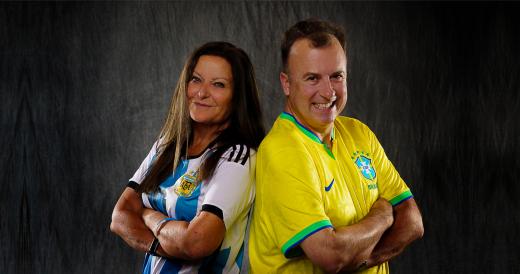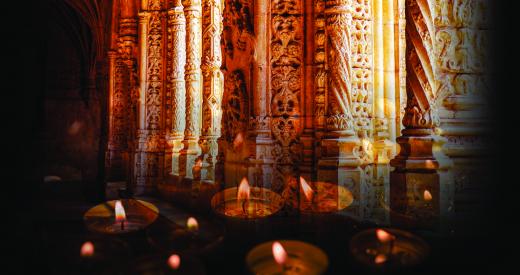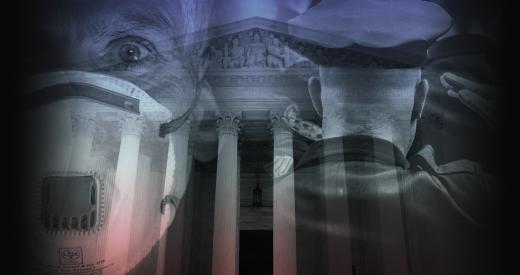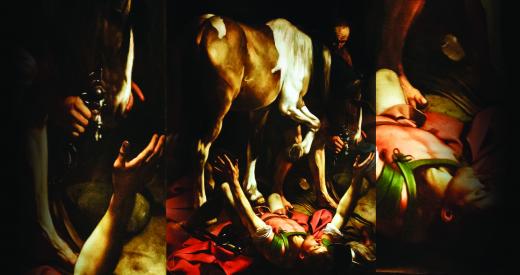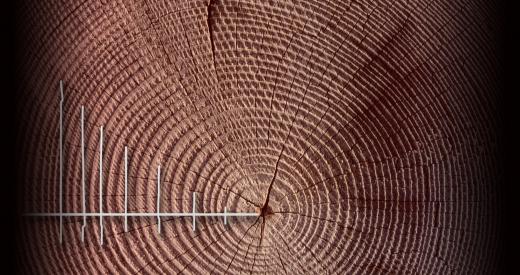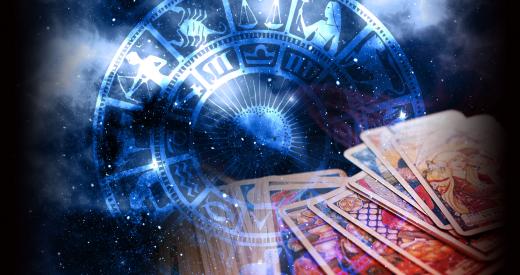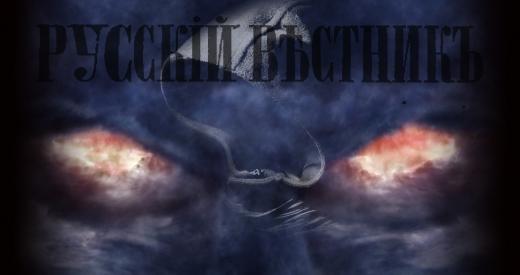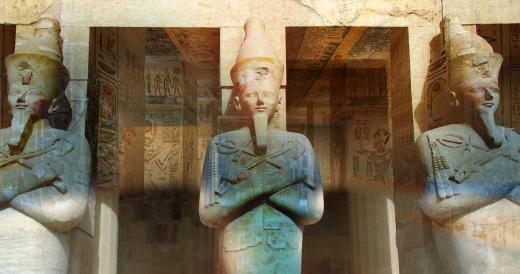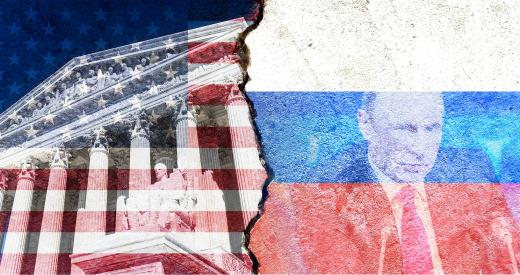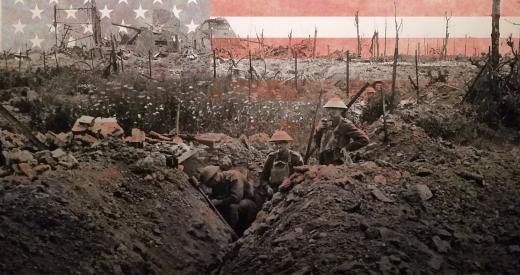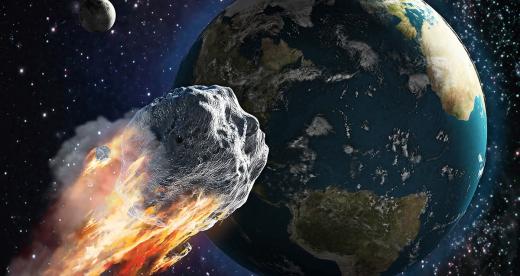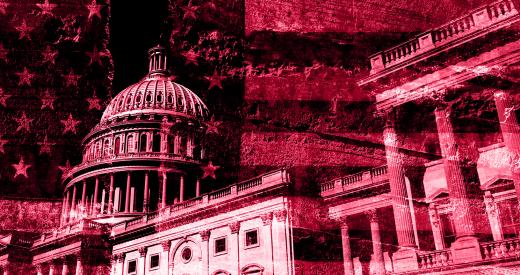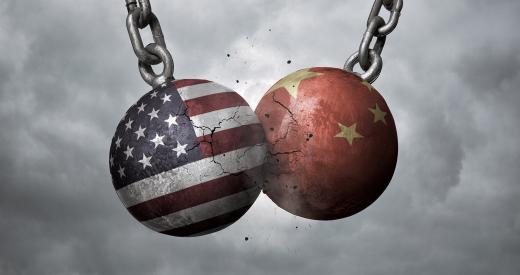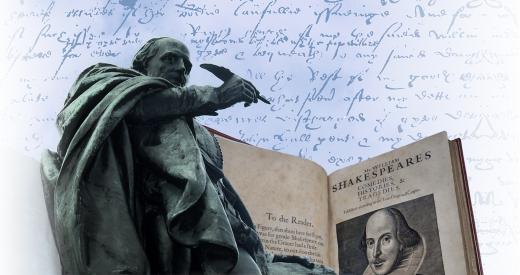Course Archive
Fall 2023
Alain-Philippe Durand, Melissa Fitch
Wednesdays
2 PM - 4 PM
Sep 20 to Oct 18
Join Dorrance Dean A-P Durand and Distinguished Professor Melissa Fitch as they take you on an unusual seminar that delves into the dance, literature, nature, urban art, cuisine, and the cultural significance of the "beautiful game" in two of South America's largest countries, Argentina, and Brazil. Participants will encounter South American dancers and divas, literary royalty, street artists, and award-winning musicians in this seminar. The course is organized around the three iconic cities of Buenos Aires, Rio de Janeiro, and Salvador da Bahia, each associated with specific writers, artists...
Charles Tatum
Tuesdays
10AM - 12PM
Sep 19 to Oct 24
We are immersed in popular culture during most of our waking hours. It is on the radio, television, our computers, and smartphones that we access the Internet and streets and highways in the form of advertisements and billboards. It is in newspapers, movie theaters, and shopping malls. It is at music concerts and sports events. It is found throughout our homes. The popular culture surrounding us can tell us much about ourselves. This is especially true when we examine popular culture analytically when we pause to study it in a socio-historical context. This course will examine Mexican...
Summer 2023
Laura Hollengreen
Offered Originally: Spring 2021
(4 Two-Hour Classes)
Aug 31
Saints and cult sites were central to religious practice in the Christian Middle Ages. This course examines four sites (Qalʿat Simʿān, Constantinople, Conques, and Chartres) to find evolving concepts of sanctity and forms of cultic practice in medieval sociopolitical context. When did new kinds of saints emerge? How did holy people interact with others in their societies? How does architecture spatialize perception of the sacred, and how does art focus it? Ranging from fifth-century Syria to thirteenth-century France, the buildings to be discussed include monastic and pilgrimage churches, a...
Caleb Simmons
Originally Offered: Spring 2021
(10 Three-Hour Classes)
Aug 31
Images of Hinduism and Hindu deities have been integrated into our collective imagination as part of American popular culture. From the cover of Jimi Hendrix’s Axis: Bold as Love, photos of the Beatles seated alongside Maharishi Mahesh Yogi, the goddess on the cover of the first issue of Gloria Steinem’s Ms. magazine, or even Ganesha on the counter of Kwik-e Mart on The Simpsons, most Americans have a vague idea about the appearance of Hindu gods and goddesses. In this course we will push beyond the layer of popular allusions to Hindu deities to take a deeper look into the mythology that...
Greg Sakall
Originally Offered: Fall 2021
(5 Two-Hour Classes)
Aug 31
The COVID-19 pandemic has given rise to many legal and sociopolitical debates. This course will review the US Supreme Court's role in those debates. The course will start off with a review of the Court’s 2020-2021 term. We will then explore in greater detail issues including individual liberties, compulsory vaccinations, COVID regulations and religious objections to the same, and qualified immunity for law enforcement officers. Readings will focus on recent and historical Supreme Court decisions, and discussion will be encouraged. The final lecture will look ahead toward the cases and issues...
Olivia Miller
Originally Offered: Summer 2021
(5 Two-Hour Classes)
Aug 31
Michelangelo Merisi da Caravaggio (1571-1610) was both a beloved and rejected painter of the Baroque era. His paintings, which often included realistic figures, theatrical lighting, and dark, obscure settings activated a deep sense of spiritual contemplation for many. Yet he was also critiqued for depicting shocking subjects and eschewing traditional painting standards. Much has been made of his dramatic biography, which includes a lengthy arrest record, a murder, and a death in exile. Throughout this course we will examine Caravaggio’s development and working methods in the context of his...
Charlotte Pearson
Tuesdays
10 AM – 12 PM
Aug 8 to Aug 29
This course will focus on the scientific field of dendrochronology (from dendron=tree and chronos=time), or tree-ring science, and what it can tell us about the past, present and future. We will explore the fascinating history of how the science was developed by a pioneering astronomer interested in solar cycles; how it works; how it has fed into other disciplines such as radiocarbon dating, art history and climatology, and how its applications have led to transformative discoveries about the past. We will look at what tree-rings can tell us about the rise and fall of civilizations, climate...
Malcolm Compitello
Wednesdays
10 AM – 12 PM
Jul 12 to Aug 9
Before his tragic murder at the hands of fascist rebels against Spain’s democracy in 1936, Federico García Lorca had established himself as one of Europe and the Hispanic World’s most promising young writers. His poetry brought to the explosion of avant-garde innovation of the first decades of the 20th century a grounding in the historical and cultural roots of Spanish culture. The result is a body of poetic work of great vitality and enduring quality which continues to challenge and inspire readers and critics alike. During this course we will examine Lorca’s two most well-known volumes of...
Richard Poss
Wednesdays
2 PM – 4 PM
Jul 12 to Aug 9
This seminar is a critical examination of the many areas which lie near science but which are not (for the most part) science, often called “marginal science” or “pseudoscience.” We will begin by examining scientific method and discovery science, falsifiability, and the nature of truth. Then each session will be devoted to a set of practices, asking questions like: Is it science? Is it valuable? Does it offer insights not otherwise available? Does it involve fraud, pretending to be scientific when it is not? Is it founded on a fallacy? Class sessions will be a combination of lecture and...
Benjamin Jens
Wednesdays
10 AM - 12 PM
May 17 to Jun 21
Dostoevsky’s Demons (1872) – according to Alexander Solzhenitsyn in 1970 – “are crawling across the whole world in front of our very eyes, infesting countries where they could not have been dreamed of” and “announcing their determination to shake and destroy civilization! And they may well succeed.” Often viewed as prophesying the 1917 Bolshevik Revolution, Dostoevsky’s satirical novel Demons has been read as a warning for the 21st century as well, with its themes of terrorism, the role of ideology, the power of rumor and “fake news”, etc. Throughout this course, we will examine Demons in the...
Pearce Paul Creasman
Tuesdays
9 AM - 11 AM
May 16 to Jun 13
This course will survey the fundamentals of ancient Egyptian religion, from the Predynastic period (ca. 4000 BC) to the end of the New Kingdom (ca. 1000 BC). Material will be covered both diachronically and synchronically. This course offers an examination of intellectual thought and religious life of ancient Egypt, with a particular focus on the major deities, religious centers, and myths.
Attend Online
All classes will be delivered online via Zoom.
Online - students may attend all classes via live video streaming and will be able to participate in all course Q&A sessions with the...
Spring 2023
Marie Darrieussecq
Wednesdays
9 AM - 11 AM
Mar 29 to Apr 17
Attend In Person OR Online
Sometimes it is easy to start writing, but it is never easy to go on. When I was very young, I was a specialist in first chapters. Later in life, I often had in mind the beginning and the end of a novel, the head and tail, but the belly of it resisted me. Developing the story’s middle, all those character elements, events, twists and turns often seemed absurd or even annoying to me. In this course, I will share how to face this void at the center of every book and skirt around what we call in French la page blanche – the blank page. The course will focus on four of...
Judy Brown, J. Pat Willerton
Thursdays
1 PM – 4 PM
Mar 16 to Apr 20
NEW! HSP Deep Dive Seminar
The purpose of this course is to analyze critically the traditional and often hidebound ways we think about democracies and other political systems. We do so by looking at the challenges confronting the Russian Federation and the United States of America. For engaging Russia, a good starting point is thinking about the notion of Russia as an “other” to the U.S., in the process trying to realistically tackle both Russian domestic politics and foreign policy (with a focus on the Russian-Ukrainian conflict). For engaging the United States, we operate through the lens...
Juan R. Garcia
Tuesdays
10 AM – 12 PM
Mar 14 to Apr 11
Attend In Person OR Online
In this course, we will cover the causes of WWI and the role of the United States in the conflict. The course will begin with the primary focus on the war itself. We will explore what was occurring on the U.S. home front. Next, we will spend some time covering the U.S. Military’s role during the war before we turn to the aftermath and consequences that the war caused on the U.S. Home Front. We will also spend some time exploring major events from 1918-1919, including the Pandemic of 1918, the battle over the Treaty of Paris both at home and abroad, the failure of...
Tim Swindle
Friday
7 PM - 8:30 PM (AZ Time)
Mar 10
Lecture Event - Attend In Person OR Online
Since the discovery that the impact of an asteroid was the probably cause of the extinction of the dinosaurs, many have wondered whether the same might happen to humanity. This has led to scientific investigation, in which the University of Arizona is at the heart, having discovered nearly half the asteroids known to mankind at present. It has also led to spacecraft missions to understand small asteroids better and to test mitigation strategies, and to international conferences devoted to understanding how to respond to the problem. Finally, it has...
Denis Provencher
Tuesdays
1 PM – 3 PM
Mar 1 to Apr 18
Course Cancelled
We regret to say that this course must be canceled and apologize for any inconvenience caused.
We will explore the life and work of queer novelist Abdellah Taïa who has built his life and literary career between his homeland of Morocco and his adopted France. We study several of his works, including his feature-length film Salvation Army. We begin by examining his childhood, where he grew up in a poor, working-class family on the outskirts of Casablanca. As a child, Abdellah developed a fascination for Europe after being exposed to films, books and music. In his adulthood,...
David Gibbs
Fridays
10 AM – 12 PM
Feb 3 to Apr 14
Attend In Person OR Online
The decade of the 1970s represented a turning point in US politics, which shifted in a rightward direction toward free market economics at the domestic level, combined with more militaristic and interventionist policies overseas. The course explores the origins of this political shift, with a special emphasis on the role of elite business interests in orchestrating the project. We will look at how the shift played out in such diverse areas as economic policy, cultural politics, and foreign/military policy. The course will also explore how the rightward shift in US...
Andres D. Onate
Thursdays
10 AM – 12 PM
Feb 2 to Apr 13
Attend In Person OR Online
There is no more critical issue facing the U.S. and its allies in 2022 than the U.S. relationship with China. How this relationship evolves is so vital to America's wellbeing that it is fair to say it eclipses or goes hand-in-hand with other political, economic, and social issues of the day. In and of itself, the future of Taiwan is a critical issue polarizing the world and, worse, has the potential to bring the U.S. and its allies into conflict with China. We will follow official U.S.-China relations dating back to 1972, when President Nixon visited China and...
Peter Medine
Wednesdays
1 PM – 3 PM
Feb 1 to Apr 12
Attend In Person OR Online
This seminar will explore the enduring relevance of Shakespeare's drama, extending from love to politics, to human fate. To mark the 400th anniversary of the First Folio, we shall study six of the plays in their genres: comedy, history, and tragedy. We shall then focus on the plays' plots, in which comedy proceeds from relative disorder to order and tragedy from relative order to disorder. Originating in the 16th century, the history play is distinguished by subject but depends on plots that conform to comic and tragic patterns. Mindful that Shakespeare was a...
Bruce Chamberlain
Wednesdays
10 AM - 12 PM (AZ Time)
Feb 1 to Feb 22
Attend In Person OR Online
Haydn’s Creation is considered one of his greatest achievements and is undoubtedly a masterwork of the choral/orchestral oratorio tradition. The original English libretto is shrouded in mystery and Haydn needed it translated into German for his purposes. Therefore, modern performances of this beautiful music must contend with either using Haydn’s German libretto, since the original English libretto does not work so well with Haydn’s music, or using one of now several newly formulated English translations/versions. Course participants will be “enlightened” about the...


